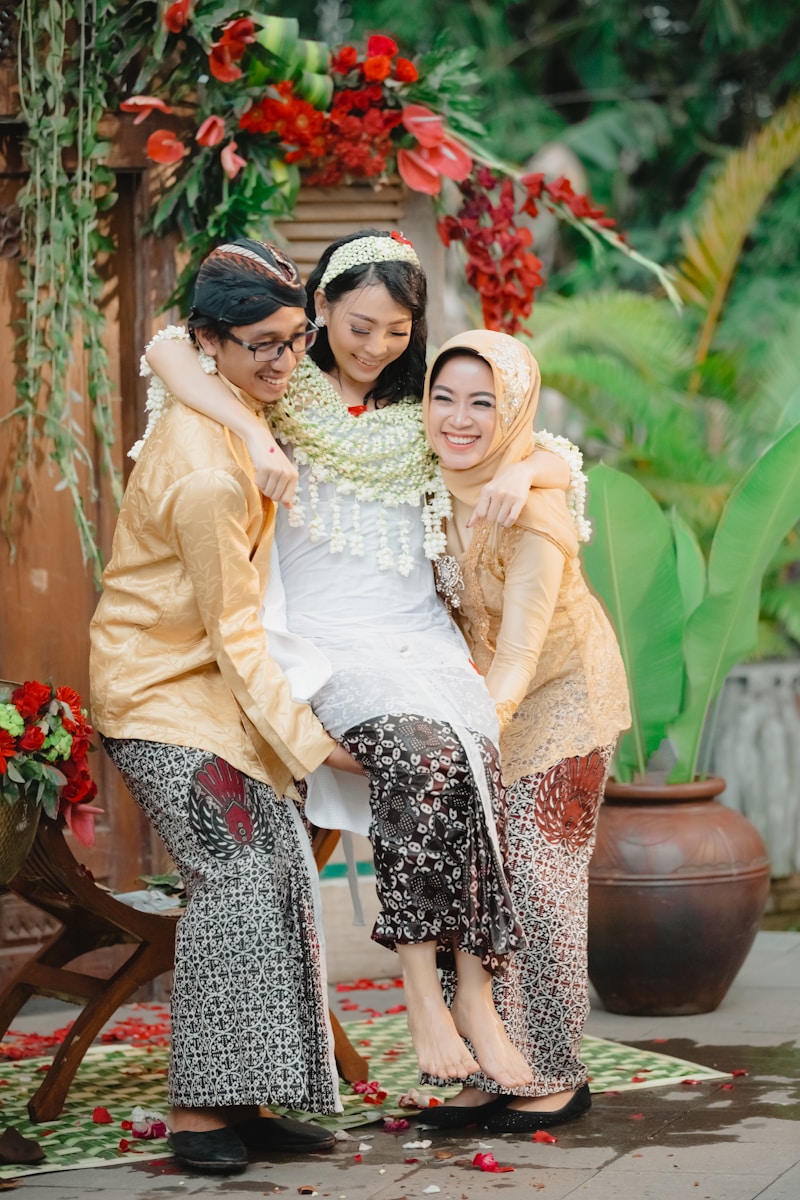Ancestral Wedding Traditions: A Journey Through Time and Culture
Ancestral Wedding Traditions: A Journey Through Time and Culture
Understanding Ancestral Wedding Traditions
Weddings are more than just a union of two individuals; they encompass a myriad of cultural and ancestral wedding traditions that have been passed down through generations. These customs not only differ from one culture to another but also help in maintaining the essence of heritage and identity. In this article, we will delve into the fascinating world of ancestral wedding traditions, exploring their significance, variations, and the reasons why they continue to thrive even in contemporary societies.
What Are Ancestral Wedding Traditions?
Ancestral wedding traditions refer to the rituals, practices, and ceremonies that are rooted in the history and culture of a particular community. These traditions can involve various elements such as clothing, rituals, music, food, and familial roles. By participating in these customs, couples honor their ancestors and keep their cultural identity alive. Each tradition has its own unique symbolisms and meanings, which can offer deep insights into the values and beliefs of a culture.
Why Are Ancestral Wedding Traditions Important?
1. Cultural Identity: Engaging in these customs allows individuals to connect with their heritage, fostering a sense of belonging. It’s a way of preserving cultural identity and transmitting it to future generations.
2. Family Unity: Weddings are often seen as a coming together of families. Ancestral traditions play a crucial role in promoting family cohesion and strengthening bonds.
3. Spiritual Connection: Many cultures believe that honoring ancestors during weddings creates a spiritual connection, bringing blessings to the couple. This connection can facilitate a positive journey through married life.
Common Ancestral Wedding Traditions Around the World
Let’s explore some of the notable ancestral wedding traditions from various cultures:
| Region | Tradition | Description |
| Africa | Jumping the Broom | This symbolizes the couple’s readiness to start a new life together, as well as honoring ancestral roots. |
| India | Wedding Mehndi Ceremony | The bride's hands and feet are adorned with intricate henna designs, which are believed to bring good luck and prosperity. |
| China | Tea Ceremony | The couple serves tea to their parents as a sign of respect and gratitude, symbolizing the Unity of families. |
| Scotland | Handfasting | A ritual where the couple's hands are tied together, symbolizing their commitment to one another. |
| Jewish | Breaking of the Glass | The groom breaks a glass to symbolize the fragility of relationships, reminding the couple of the hard times along with the joy. |
Exploring the Details of Each Tradition
Each of these traditions has rich meanings that reflect the unique historical and cultural contexts they stem from. For example, in the Jumping the Broom tradition prevalent in African American weddings, it signifies sweeping away the old and making way for new beginnings. This tradition also serves as a reminder of the struggles faced by enslaved ancestors and their resilience.
In India, the Mehndi Ceremony is not just a beautification ritual; it is steeped in symbolism. The henna used during this ceremony is believed to carry with it blessings of love, happiness, and prosperity. Families often gather to celebrate this pre-wedding event, making it a social as well as a cultural highlight.
Modern Adaptations of Ancestral Traditions
Many couples today are incorporating these ancestral wedding traditions in unique ways. Fusion weddings—where different cultural traditions mix—are increasingly popular. For example, a wedding might feature an Indian Mehndi ceremony and a Chinese tea ceremony concurrently, showcasing the diversity of the couple's backgrounds. Additionally, some modern couples might opt for simplified versions of traditional rituals, blending contemporary tastes with ancestral roots.
The Future of Ancestral Wedding Traditions
As globalization continues to influence societies, ancestral wedding traditions are evolving. While some practices may fade away, others are being revived and adapted. With the rise of social media, many couples are sharing their unique fusion of traditions, thereby inspiring others. These customs not only enhance wedding ceremonies but also serve as a bridge connecting people from different backgrounds through mutual respect and understanding.
Tips for Celebrating Ancestral Wedding Traditions
1. Research Your Heritage: Understanding the historical context of your ancestral traditions can deepen their significance during your wedding.
2. Involve Family: Family members often play a vital role in traditional ceremonies. Engaging them can enhance the experience and create lasting memories.
3. Be Open to Adaptations: While honoring ancestral practices, be open to modernizing some aspects to match personal preferences and values.
4. Document the Ceremony: Capture the essence of the traditions through photography or videography, helping future generations appreciate their heritage.

Conclusion
In conclusion, ancestral wedding traditions are invaluable treasures that reflect our roots and reinforce cultural identities. They create a unified celebration of love, family, and history. By embracing these customs, couples not only pay homage to their ancestry but also enrich their own relationship through shared values and communal support. Whether you choose to follow traditional practices or adapt them to your modern context, the essence of these rituals will always resonate deeply within the fabric of your celebration.
